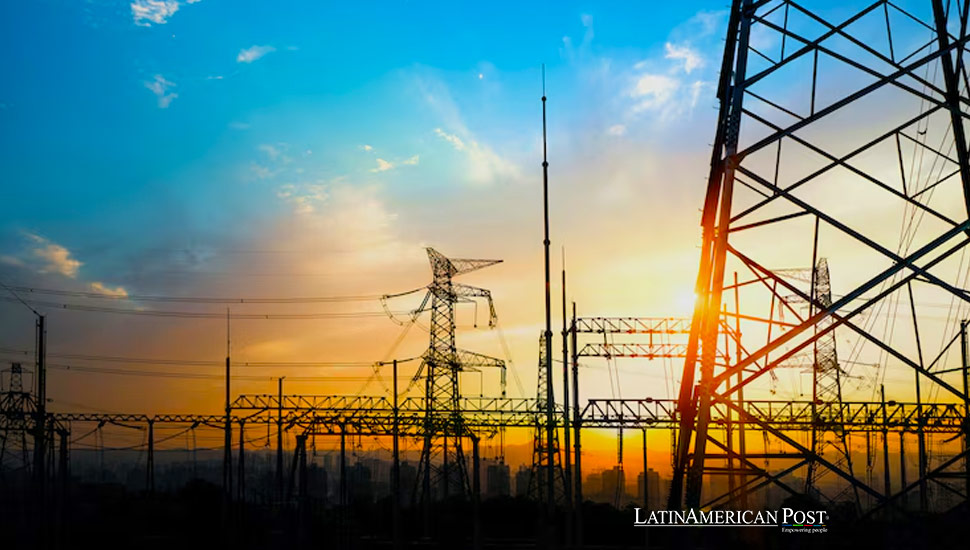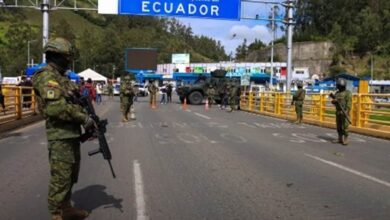Ecuador Faces Energy Crisis and Suspends Workdays

Amid a severe energy crisis that prompted nationwide blackouts, the Ecuadorian government suspended workdays this Thursday and Friday, just as the country prepares for a crucial referendum on security, justice, and employment reforms.
Ecuador is grappling with an acute energy crisis that has forced the government to take drastic measures, including suspending the workweek, leading to an essential national referendum. The situation, which began with unexpected widespread blackouts last Sunday, has escalated quickly, leading to significant disruptions across the nation and culminating in the removal of high-ranking officials accused of mismanagement and corruption.
On a typical weekday, Ecuador’s streets buzz with activity. However, this Thursday and Friday, the nation experiences an unusual quiet. The government, led by President Daniel Noboa, issued a decree halting public and private sector activities aimed at conserving energy amidst dwindling resources. For the public sector, the lost days will be compensated by an additional hour of work in the coming days, while the private sector will negotiate terms independently.
This drastic step reflects the severity of the current situation, which was exacerbated by misleading assurances from former Energy Minister Andrea Arrobo, who publicly claimed last Friday that the country would not face blackouts. By Tuesday, President Noboa demanded her resignation, accusing her of withholding critical information that could have potentially averted the crisis.
Governmental Accusations and Responses
The unfolding scenario took a dramatic turn when President Noboa accused some aspects of the energy sector of sabotage. According to the presidency, preliminary investigations suggest that senior officials from the Ministry of Energy and Mines intentionally suppressed crucial information and ignored warnings that could have preempted the severe energy shortages.
The administration alleges that these acts of corruption and negligence have compounded the environmental challenges already impacting the country’s hydroelectric output. The critical water levels at the Mazar and Paute reservoirs, crucial for Ecuador’s hydroelectric capacity, are alarmingly low, with Mazar at 0% operational capacity and Paute at just 4%.
Broader Implications for Ecuador
The timing of the energy crisis is particularly sensitive as Ecuador prepares for a referendum that could reshape significant aspects of the nation’s security, justice, and employment landscape. The government’s ability to manage this crisis affects not only immediate public welfare but also public trust in institutional stability and governance, which are critical themes of the upcoming vote.
Ecuador is not alone in facing infrastructure and energy challenges. Across Latin America, nations struggle with similar issues, often exacerbated by natural phenomena and compounded by alleged mismanagement and corruption. Countries like Venezuela and Argentina have also faced significant power shortages that disrupted daily life and led to political and social unrest.
Looking Forward
As Ecuador navigates this crisis, the government’s response and its implications for national stability are under scrutiny. The energy sector’s vulnerability has been starkly exposed, and the need for robust, transparent, and efficient management is more apparent than ever. This incident likely prompts a broader reevaluation of energy policies and the importance of sustainable and reliable energy sources.
Moreover, the international community is watching how Ecuador handles this dual challenge of governance and resource management, as it could set precedents for crisis response and democratic processes in similar contexts.
Also read: Ecuador’s Flower Industry Blooms Amidst Challenges
The Ecuadorian energy crisis is a critical lesson in the importance of crisis management, the devastating impact of corruption, and the interconnectedness of governance, public trust, and national development. As Ecuadorians look to their government for solutions, the world sees an example of the complexities involved in managing a modern energy grid, the repercussions of administrative failures, and the resilience of a nation in the face of adversity.





